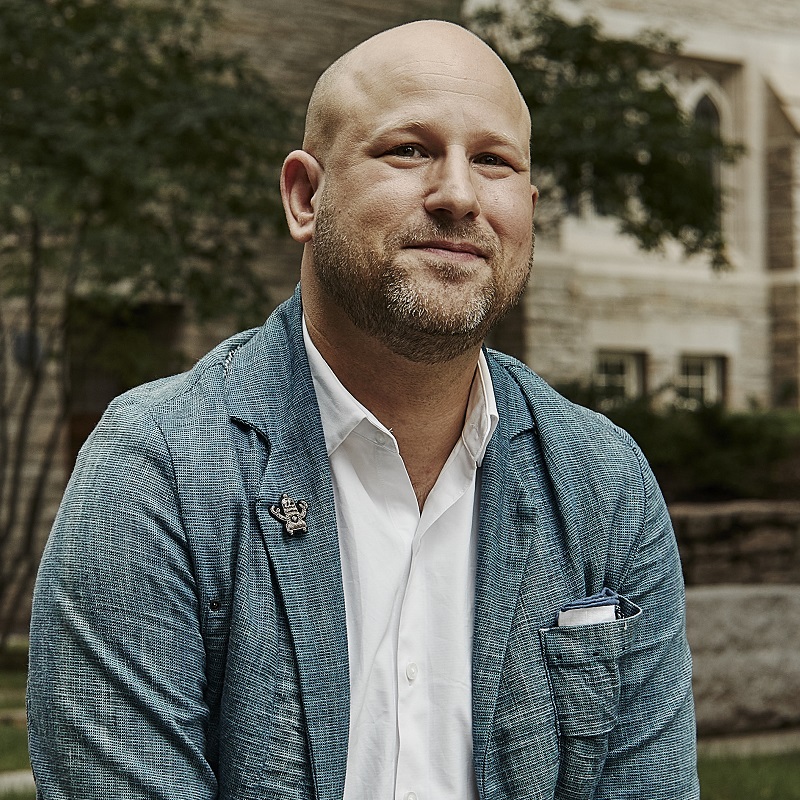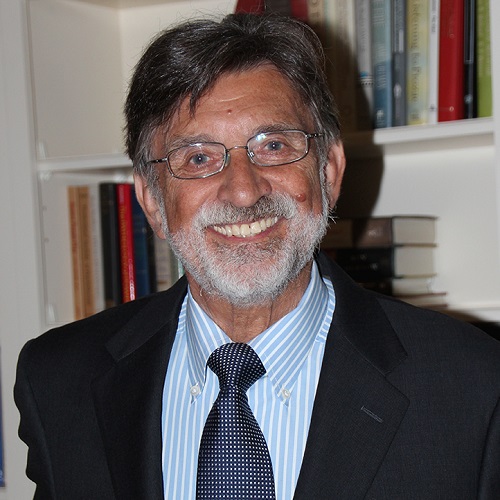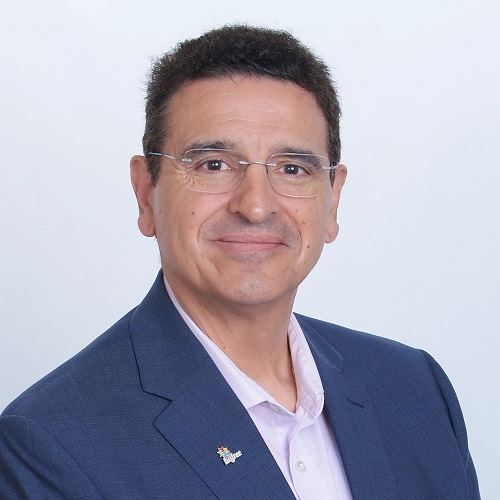Saturday, September 14
11:40am-12:40pm
As artificial intelligence (AI) continues to advance at an unprecedented rate, it presents both transformative opportunities and profound ethical challenges. This panel explores the intersection of humanism and AI, focusing on how humanist principles can guide the development and deployment of AI technologies in a manner that promotes human well-being, equity, and ethical responsibility. Through a lively discussion, our panelists will offer insights into the current state of AI research, share practical examples of humanist-inspired AI applications, and provide guidance on navigating the complex moral landscape of emerging technologies. Attendees will gain a deeper understanding of the role humanism can play in ensuring that AI avoids ethical risks while serving the greater good and respecting human dignity.
Join our distinguished panel of experts as they delve into critical questions such as:
 Greg M. Epstein serves as the humanist chaplain at Harvard University and at the Massachusetts Institute of Technology (MIT) and as Convener for Ethical Life at the MIT Office of Religious, Spiritual, and Ethical Life. For nearly two decades, he has built a unique career as one of the world’s most prominent humanist chaplains — professionally trained members of the clergy who support the ethical and communal lives of nonreligious people.
Greg M. Epstein serves as the humanist chaplain at Harvard University and at the Massachusetts Institute of Technology (MIT) and as Convener for Ethical Life at the MIT Office of Religious, Spiritual, and Ethical Life. For nearly two decades, he has built a unique career as one of the world’s most prominent humanist chaplains — professionally trained members of the clergy who support the ethical and communal lives of nonreligious people.
Described as a “godfather to the [humanist] movement” by The New York Times Magazine, Epstein was also named “one of the top faith and moral leaders in the United States” by Faithful Internet, a project coordinated by the United Church of Christ with assistance from the Stanford Law School Center for Internet and Society, for his efforts to bring together atheists, agnostics, and allies, as part of an ancient and ever-evolving ethical tradition that can be called humanism. As Greg believes deeply: in a changing world where faith in humankind can be more difficult to maintain, it is more important than ever to fight for our common humanity, and for each other.
Greg’s New York Times bestselling book, “Good Without God: What a Billion Nonreligious People Do Believe,” remains influential years after its initial publication helped popularize the notion that the rapidly growing population of secular people can live lives of deep purpose, compassion, and connection. Greg’s 2018 move to join MIT alongside his work at Harvard, inspired an 18-month residency at leading Silicon Valley publication TechCrunch, exploring the ethics of technologies and companies shifting our definition of what it means to be human, often in troubling ways. His next book, “Tech Agnostic: How Technology Became the World’s Most Powerful Religion, and Why it Desperately Needs a Reformation,” will be published fall ’24 by MIT Press, distributed by Penguin Random House. His writing has also appeared in The Boston Globe, MIT Technology Review, CNN.com, The Washington Post, and Religion News Service.
Greg has contributed, as speaker or organizer, to thousands of humanist and interfaith programs at Harvard and elsewhere — universities, community and state colleges, urban public and expensive private high schools, the Democratic National Convention, the U.S. Congress and Senate, megachurches, synagogues and Islamic centers, hospitals, prisons, and civic institutions of many other kinds. He recently served a term as president of the Harvard Chaplains, Harvard University’s corps of over forty chaplains.
Photo by Cody O’Laughlin, New York Times
 John Hooper is the Treasurer of the American Humanist Association. Dr. Hooper is a retired scientist and research director, having pursued a career in molecular imaging and spectroscopy. Hooper has held local and national leadership positions in organizations involving naturalism, Humanism, and Unitarian Universalist social action. He is treasurer of the American Humanist Association Board of Directors and chair of the board’s Budget and Strategic Planning Committees; a board member of The Institute for Humanist Studies; a trustee of the Humanist Foundation; and coordinator of the Chautauqua Humanism Initiative. He previously served as president of the Unitarian Universalist Humanist Association (HUUmanists.org) and president of the Secular Coalition for America Education Fund. John is a founding member of both the Humanists and Freethinkers of Fairfield County (CT) and the Pittsburgh (PA) Freethought Community. He and his wife, Dr. Gail M. Pesyna, a retired foundation executive, now live in Pittsburgh, PA.
John Hooper is the Treasurer of the American Humanist Association. Dr. Hooper is a retired scientist and research director, having pursued a career in molecular imaging and spectroscopy. Hooper has held local and national leadership positions in organizations involving naturalism, Humanism, and Unitarian Universalist social action. He is treasurer of the American Humanist Association Board of Directors and chair of the board’s Budget and Strategic Planning Committees; a board member of The Institute for Humanist Studies; a trustee of the Humanist Foundation; and coordinator of the Chautauqua Humanism Initiative. He previously served as president of the Unitarian Universalist Humanist Association (HUUmanists.org) and president of the Secular Coalition for America Education Fund. John is a founding member of both the Humanists and Freethinkers of Fairfield County (CT) and the Pittsburgh (PA) Freethought Community. He and his wife, Dr. Gail M. Pesyna, a retired foundation executive, now live in Pittsburgh, PA.
 Krystal Jackson is a cybersecurity specialist at the Cybersecurity and Infrastructure Security Agency where she works to protect the nation’s critical infrastructure. Previously, she has worked on cybersecurity, AI, data ethics, and technology policy research for various think tanks, government agencies, advocacy groups, and universities.
Krystal Jackson is a cybersecurity specialist at the Cybersecurity and Infrastructure Security Agency where she works to protect the nation’s critical infrastructure. Previously, she has worked on cybersecurity, AI, data ethics, and technology policy research for various think tanks, government agencies, advocacy groups, and universities.
Her humanist journey started in college, where she served on the executive team, including as president her senior year, of Carnegie Mellon University’s student group the Human League. In this role, she brought prominent humanist speakers to campus, engaged the secular student body, organized community service work, and led weekly discussion groups. During this time Krystal received a Secular Student Alliance scholarship for her activism and social justice efforts as a leader of this group. Krystal is passionate about interfaith work as well and was active in bringing the principles of Interfaith America (formerly Interfaith Youth Core) to her campus by working with administrators on interfaith strategic plans and additionally was involved with the Pennsylvania Interfaith Impact Network. Krystal received the inaugural Americans United Youth Organizing Fellowship, enabling young people to advocate for the separation of church and state and promote inclusive religious freedoms. She also served on the board of directors of two of her city’s local secular groups, the Pittsburgh chapter of Sunday Assembly, and on the board chairing the activism committee of the Pittsburgh Freethought Community. In all her roles Krystal has been excited to promote humanist values, build community, and make secular spaces inclusive, vibrant, and welcoming for all people to be involved in.
 David Tamayo is co-founder and president of Hispanic American Freethinkers in 2010, which is the first and only national Latino not-for-profit educational organization of its kind. He was Vice President of the Reason Rally, former host of the TV Show “Road to Reason — A Skeptic’s Guide to the 21st Century”, founding Board Director of Camp Quest — Chesapeake, and host of Contrapuntos Podcast. He is an Executive Board Director at Freedom From Religion Foundation, and a Trustee for the American Humanist Foundation. David is Executive Vice President and Chief Information Officer for a large aerospace engineering firm in the Washington, D.C. area. He holds a bachelor’s degree in Computer Science from George Washington University, and a master’s in Management of Information Technology from University of Virginia.
David Tamayo is co-founder and president of Hispanic American Freethinkers in 2010, which is the first and only national Latino not-for-profit educational organization of its kind. He was Vice President of the Reason Rally, former host of the TV Show “Road to Reason — A Skeptic’s Guide to the 21st Century”, founding Board Director of Camp Quest — Chesapeake, and host of Contrapuntos Podcast. He is an Executive Board Director at Freedom From Religion Foundation, and a Trustee for the American Humanist Foundation. David is Executive Vice President and Chief Information Officer for a large aerospace engineering firm in the Washington, D.C. area. He holds a bachelor’s degree in Computer Science from George Washington University, and a master’s in Management of Information Technology from University of Virginia.
AHA's Virtual Annual Conference | September 14-15, 2024 | American Humanist Association
1821 Jefferson Place NW, Washington, DC 20036 | (800) 837-3792 | conference@americanhumanist.org
Code of Conduct

|
